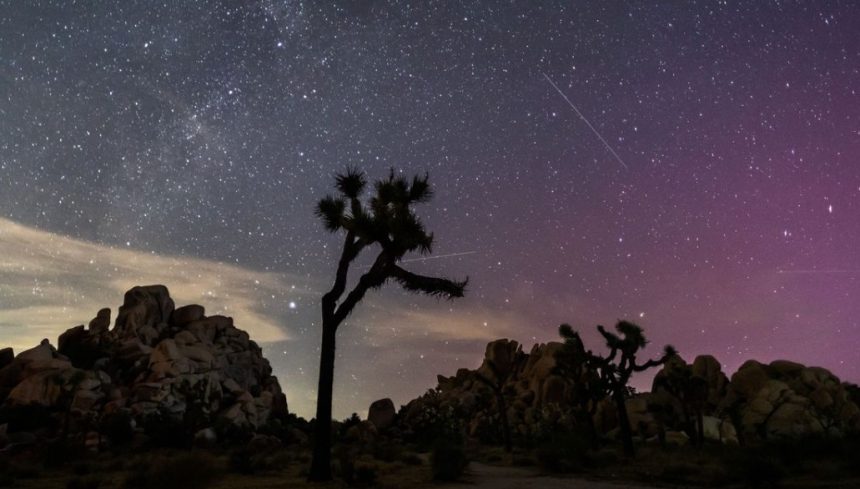Dazzling Perseid Meteor Shower Lights Up UK Skies
Stargazers were treated to a stunning celestial display as the Perseid meteor shower reached its annual peak in the early hours of Wednesday.
Across towns, cities, and quiet countryside fields, shooting stars streaked through the darkness. The Perseids, one of the most anticipated astronomical events of the year, didn’t disappoint.
Every August, Earth moves through the dusty trail left behind by the Swift-Tuttle comet. Tiny particles, some no bigger than a grain of rice, collide with our atmosphere at incredible speeds, creating bright trails that we call shooting stars.
Royal Observatory Greenwich astronomer Dr Ed Bloomer explained: “If you’re looking out from your garden, it sounds obvious, but switch the kitchen light off, give yourself time to just put the phone away.”
At its peak, around 150 meteors per hour were expected. While the horizon blocks a full view, in the right spot, somewhere flat, dark, and far from city glare, watchers could spot close to 100 per hour.
The Perseids have been active for weeks and will continue until roughly 24 August, giving Britons several more chances to catch a glimpse. Weather, however, may play spoilsport.
In fact, this year’s event coincides beautifully with another celestial treat, the Sturgeon Moon over the UK, making the night skies even more spectacular.
Met Office Chief Meteorologist Dan Suri warned of unsettled skies: “By the evening, there is an increased risk of thunderstorms across northern areas, with the potential for some fairly wet weather.
Whilst the exact location for these unsettled conditions remains uncertain, it’s possible a warning may be issued closer to the time.”
Clearer skies are forecast for the south later in the week, but the north may see “cloudier conditions and some patchy rain.”
For the best view, Dr Bloomer recommends patience and preparation: “You have to let your eyes adjust to the dark… Take a camping chair or something, if you had one, you would just sit down, and you would just relax, and you would just wait. You want to get away from city lights, you want to get away from street lamps.”
Viewers struggling to spot meteors should try using peripheral vision, as it helps in low-light conditions. And yes, a late-night wait is inevitable, summer nights take their time to get fully dark.
“For us, it’s kind of one of the best (meteor showers), it’s kind of reliable, it’s long-lived, it’s quite dense… It’s pretty active,” said Dr Bloomer. “You don’t need to really be in a very specific location, the hourly rate is fairly high, so I think even beginners will be… satisfied having seen them.”
While visible across the UK, the north offers a slightly better vantage point. Still, dark skies matter more than geography. “Getting into the middle of a field in the south east of England, in London, is going to be better than being in the middle of Aberdeen,” he noted.
Most meteors vanish in a blink, though occasionally a fiery streak lasts longer. These “fireballs”, caused by larger fragments, can glow for up to 10 seconds. Anything brighter and bigger still, known as a bolide, is exceptionally rare.
With the waning moon fading later this week, conditions may improve for those chasing the show. And for anyone willing to lose a little sleep, the Perseid meteor shower remains one of the most magical sights in the British summer sky.






